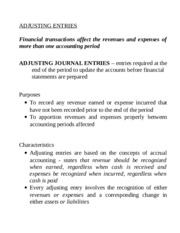
From there, you can add comprehensive accounting, payroll, and tax services as needed. Bookkeeper.com manages your accounts using QuickBooks Online (or QuickBooks Desktop, if you prefer). Plus, not every online bookkeeping service works with both accrual-basis and cash-basis accounting—but Bookkeeper.com does. The financial service packages you can hire out will depend upon the entity you are working with.
QuickBooks Live: Best for QuickBooks users
As mentioned, it’s crucial to take relevant precautions when sharing sensitive data with your provider. When working with any service provider, it’s important to establish service-level agreements (SLAs). These lay out the specifics of the services provided and keep both parties on the same page. To make the best possible financial decisions, it’s important to fully understand your company’s financial position and analyze potential outcomes. You must also manage the relevant tax obligations for your employees and (in some cases) independent contractors. Again, Remote can help ensure that you are withholding (and contributing) the right amounts of tax for your employees, regardless of net assets where they are based.

Payroll management is all about making sure your employees are paid accurately and on time for their work. In administrative terms It involves calculating wages, withholding taxes and other deductions, and issuing payslips. Outsourcing these tasks to professionals allows you to better manage your cash flow, maintain healthy relationships with your suppliers, and more accurately gauge profitability. If you’re hiring across borders, you’ll have to recruit in-house accountants in all the countries you’re onboarding in. This can be costly and complex, especially if you don’t have legal entities in those countries. Companies looking for expert bookkeepers who can handle their very niche needs may also have no other option but to leverage outside bookkeeping firms.
- Don’t worry about financial reporting, payroll taxes, accounting tasks, or offline vs. online bookkeeping.
- All outsourcing companies have unique qualities but differ in many ways.
- Categorizing these transactions helps analyze spending patterns and identify profitable ventures where cost-cutting measures might be necessary.
- Hiring a large accounting firm to cover the full service of all accounts can take a considerable amount from your small company’s net profits.
800Accountant: Best for small-business taxes
They perform the preliminary functions needed in order for the accountant to do their job at the end of each period. However, Merritt can still recommend a solid payroll provider or tax consultant who meets your needs. The typical cost for outsourcing bookkeeping, accounting, and similar services ranges from $500 to $5,000 per month. There is a massive price difference based on complexity, transaction volume, and many other factors. You can get in touch with professional bookkeepers for virtual bookkeeping through how governments can repair public finances an online account.
What are the challenges of outsourced accounting?
Outsourced, virtual bookkeeping can cost as little as $150 per month and as much as $900 (or more) per month. Some companies charge by the number of accounts you need them to manage, while other companies charge based on your company’s monthly expenses. Typically, the lower your expenses (and the fewer your accounting needs), the less you’ll be charged.
Bookkeeper.com: Most versatile outsourced bookkeeping solution
Pilot, a service conceived with these smaller scales in mind, helps organizations get professional bookkeeping help even if they’re just getting the business off the ground. It comes with fewer add-on features or upgrades, but for those who just need assistance keeping the numbers accurate, Pilot is an excellent fit. Firms and freelancers can be local or virtual, though most bookkeeping firms will opt for a virtual system over a physical one. First, local bookkeeping is usually done with pen and paper, while virtual bookkeeping takes this service into the digital realm. Want to kick off your small-business accounting with a solid accounting software service? Enter some basic information about your current accounting needs and we’ll send you up to five customized quotes.
A bookkeeper helps with the day-to-day financial activities for your business to free up more of your time. It’s always a good idea to oversee the activities and check in with your bookkeeper through regular updates and reports. But letting a bookkeeper do the actual work is usually more efficient and lets you focus on handling your business. Ignite Spot is on the pricier end of how to calculate the provision for income taxes on an income statement the brands on this list, but what you get for the price is hard to argue against. Especially for teams that need the support but aren’t ready to hire a full-time accountant internally, Ignite Spot is a solid answer to the bookkeeping dilemma. A freelance bookkeeper works with you one-on-one to get your books done.
You must establish a safe and secure data exchange method with the outside accounting firm, preferably a modern cloud-based approach. That way, the accountants can quickly pull the necessary information without wasting your time and resources. As you grow, having a professional, outsourced accountant on your side gives you the advantage of proactivity rather than reactivity. Trained accountants can spot red flags ahead of time and notify you about things like cash flow discrepancies. There are numerous resources and teaching materials online that can provide you with a better understanding of what is needed to do the job right.
Keeping track of financial data for a business takes time, effort, and money. But when you play your cards right, you can save on all 3 factors big time. You can hire a freelance bookkeeper for different CFO services to give you peace of mind. Here’s everything you need to know about outsourced bookkeeping to help you get started and streamline your day-to-day operations. Essentially, you’ll give a third-party bookkeeper access to important financial information like bank statements, payroll, tax documents, and your accounting software. They’ll take it from there, generating financial reports, ensuring your ledgers are up to date, and tracking money that goes both in and out of the company, among other essential tasks.

